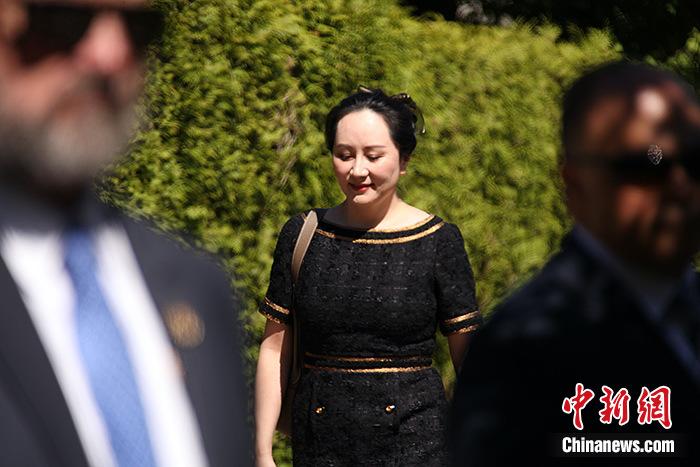China News Service, Toronto, March 23 (Reporter Yu Ruidong) Meng Wanzhou’s defense lawyer stated in a Vancouver court on March 22 local time that the judge should testify against a retired Canadian Mounted Police officer who refused to testify in court. "Unfavorable inference."
The extradition case of Meng Wanzhou continued to be heard in the High Court of British Columbia, Canada.
Meng Wanzhou himself attended the trial.
Data map: Huawei Vice Chairman and Chief Financial Officer Meng Wanzhou walked out of his residence in Vancouver, Canada.
Photo by China News Agency reporter Yu Ruidong
Meng Fang’s lawyer believes that as a sworn police officer, Ben Chang, a retired police officer, had cooperated with the prosecutor to testify, claiming that he did not pass Meng’s electronic device serial number to the FBI, but refused to appear in court without explanation. The practice of cross-examination testimony was "breakthrough" and was "one of the disturbing factors" in this case.
In view of the key role of this person in the case, lawyer Meng Fang believes that the judge should not accept his affidavit.
From late October to early mid-December last year, the prosecution and defense conducted cross-examination of 11 witnesses from the Canadian Border Service Agency and the Royal Mounted Police in multiple rounds of court hearings. In the process of detaining Meng Wanzhou at the beginning of the month, there were behaviors suspected of interfering with laws and regulations.
Ben Chang, who retired after half a year in detention in Bangladesh, refused to appear in court for questioning.
And he has left Canada and went to Macau.
The defense questioned that Canadian law enforcement agencies illegally searched for evidence in Bangladesh during the detention and transmitted relevant information to the US through improper channels.
Attorney Meng Fang stated in the court that under the circumstances that the court has made a request and the defense has issued a notice, the prosecution and the RCMP have not taken proper preservation measures for the relevant documents related to the communication between the mounted police and the US Federal Bureau of Investigation.
All the emails and at least 28 text messages of Ben Chang in the Mounted Police account were destroyed after his retirement, and there was no archive in the system.
The defense considered this to be "unacceptable negligence" and questioned the RCMP intentionally destroying these documents.
A Canadian RCMP network technician admitted in court testimony last year that Ben Chang had sent an email to the email address of the FBI domain on the day after he arrested Meng, but the content is not known.
At the same time, Meng Fang’s lawyers believed in the court that the notes and testimonies of the Canadian law enforcement officers on the arrests were flawed, or the contents were inconsistent, contradictory, or key items were omitted, and the quality of the records was "low.
All this is intended to destroy evidence and conceal the truth of the incident.
The prosecution will respond in a subsequent trial.
This round of hearings, which began in early March, focused on whether the case constituted an abuse of the Canadian judicial process and was sufficient to suspend the extradition process. It is planned to last until mid-May.
(Finish)

